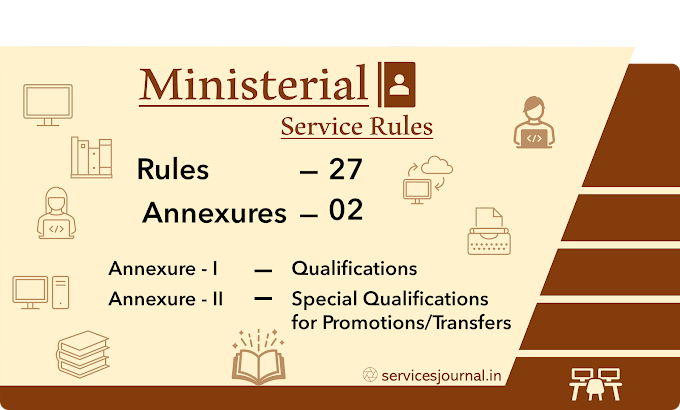2.
As will be appreciated, Members of the Parliament and of the State Legislature
have important functions to perform under the Constitution. It should be the
endeavour of every officer to cooperate and if necessary, assist them, to the
extent possible, in the discharge of their functions. In this connection, I am
to invite a reference to the instructions contained in G.O.Ms.No.1293 General
Administration (Services.A) dated 22-8-1958, which inter alia direct that:-
i) For purpose of
interview, Members of Parliament and Members of State Legislature should be
given preference over other visitors, and in very rare cases where an officer
is unable to see a Member of Parliament or State Legislature, at a time about
which he had no previous notice, the position should be politely explained to
the Member and another appointment fixed in consultation with him.
ii) When an
officer is unable to accede to a request or suggestion of a Member of
Parliament or State Legislature the reasons for the inability to do so should
be courteously explained to him and where compliance with his request for
information would be inexpedient, the officer should send a courteous reply
that he is unable to furnish the information.
iii) When a
request for information is received from Members of Parliament or State
Legislature, on details of administration or any other factual information, the
officer should immediately acknowledge it in a letter and tell the Member that
a reply would be sent shortly and accordingly send it as soon as possible.
iv) The Collectors
may, ordinarily, furnish Members of the Legislature or Parliament at their
request with information within their cognizance such as statistics or facts
relating to local matters or public concern.
v) No information
shall ordinarily be given except by the principal officer of a department in
the District.
vi) At public functions, seats befitting their position should be reserved for Members of Parliament and State Legislature.
3. I would also invite your attention to the gist of instructions in Appendix II.to the Indian Civil Services Manual (enclosed), which lay down certain broad principles governing the treatment of visitors. The instructions provide that it is one of the most important duties of all Government Officers and particularly of District Officers to be freely accessible to all who desire to see them on official business and that visitors should be received, whenever possible, unless some definite reason for refusal exists.
4. I am to request that the above instructions may be strictly followed and the officers under your control be told that complaints of uncivility to Members of Parliament or Members of Legislature or for that matter any visitor will be seriously viewed by Government.
A GIST OF
INSTRUCTIONS IN APPENDIX II TO THE INDIAN CIVIL SERVICES MANUAL CONTAINING
BROAD PRINCIPLES GOVERNING TREATMENT OF VISITORS.
1. It is one of the most important duties of all Government officers and particularly of District Officers to be freely accessible to all who desire t6 see them on official business or as a matter of courtesy, on important occasions. However, efficient an officer may be on paper or in his court, he is a failure, if he is not personally known to the people of his district or division. Also there is nothing which a person appreciates more than an opportunity of personal access to the officer concerned for representing orally his grievance or his point of view. Even when it is a foregone conclusion that the reply to a representation must be in the negative, it is a mistake on that account to decline to listen to argument within reasonable limits or to terminate curtly a discussion. A refusal or an inpalatable order is accepted with much greater resignation when the officer who has to issue it has listened to all that is to be said on the other side.
2. Visitors should invariably be received, whenever possible, unless some definite reason for refusal exists. On no accour1t should peons or servants be permitted to refuse access to the officer, without his personal orders. They should have positive orders to announce by card or otherwise, every visitor who calls, and to leave it to the officer to say if he is unable to receive visit. Suitable arrangements should be made to provide a room or verandah or other suitable place for visitors to wait in. If an officer lets it be known that he prefers to receive visitors with certain hours, he will find that visitors will generally conform to his wish.
3. If, owing to unavoidable circumstances, it is impossible to receive a visitor at the time when he calls, a verbal message should not be sent by a peon or servant. A few words written on the back of the visitors’ card will be appreciated, and unless it is intended definitely to decline the visit, they should be accompanied by a civil request to call again at a named time.
4. When receiving a visitor by appointment, or when returning a call, an officer should be properly dressed. If he is working without a coat when a visitor is announced, he should have the civility to resume his coat before admitting him.
5. The length of the visit depends upon the visitor's business. If it is merely complimentary, ten minutes are ample. The host must therefore, himself indicate when he considers that it is time to terminate the visit or interview, which is easily done by merely rising with the remark that it has given pleasure to make visitor acquaintance or see him again, that the hour is late, that work is pressing or a few similar civil words.
6. Peons and servants very often demand, openly or impliedly money presents from visitors and, failing compliance, are apt to offer passive, if not active insolence. The greatest care should be taken to check this tendency, and detection should be followed by severe punishment. The visitors have a keen dread of the humiliation which it is sometimes in the power of menials to inflict upon them.
OPEN - CCA Rules - References (open)













